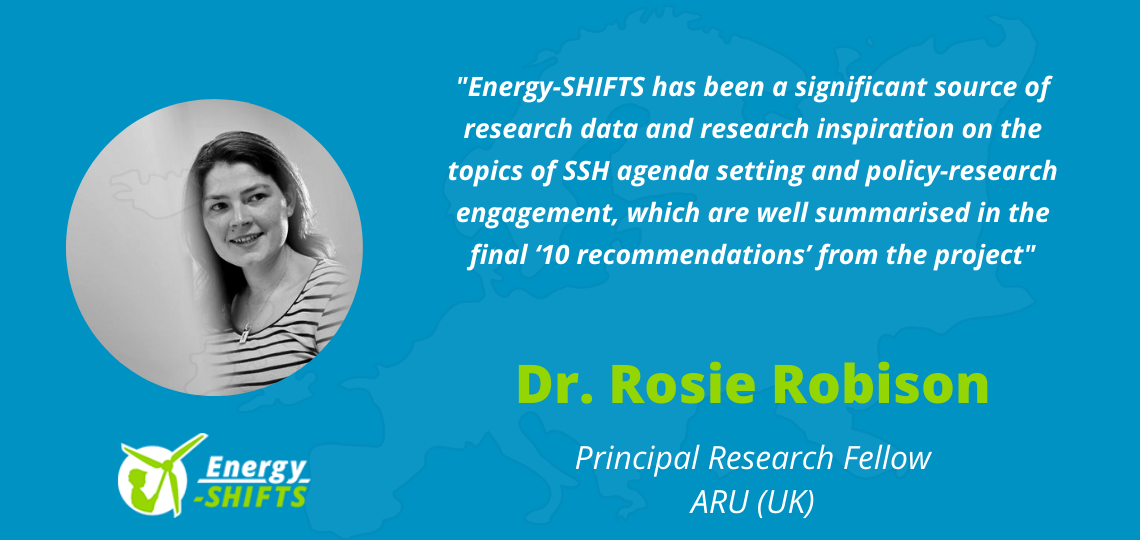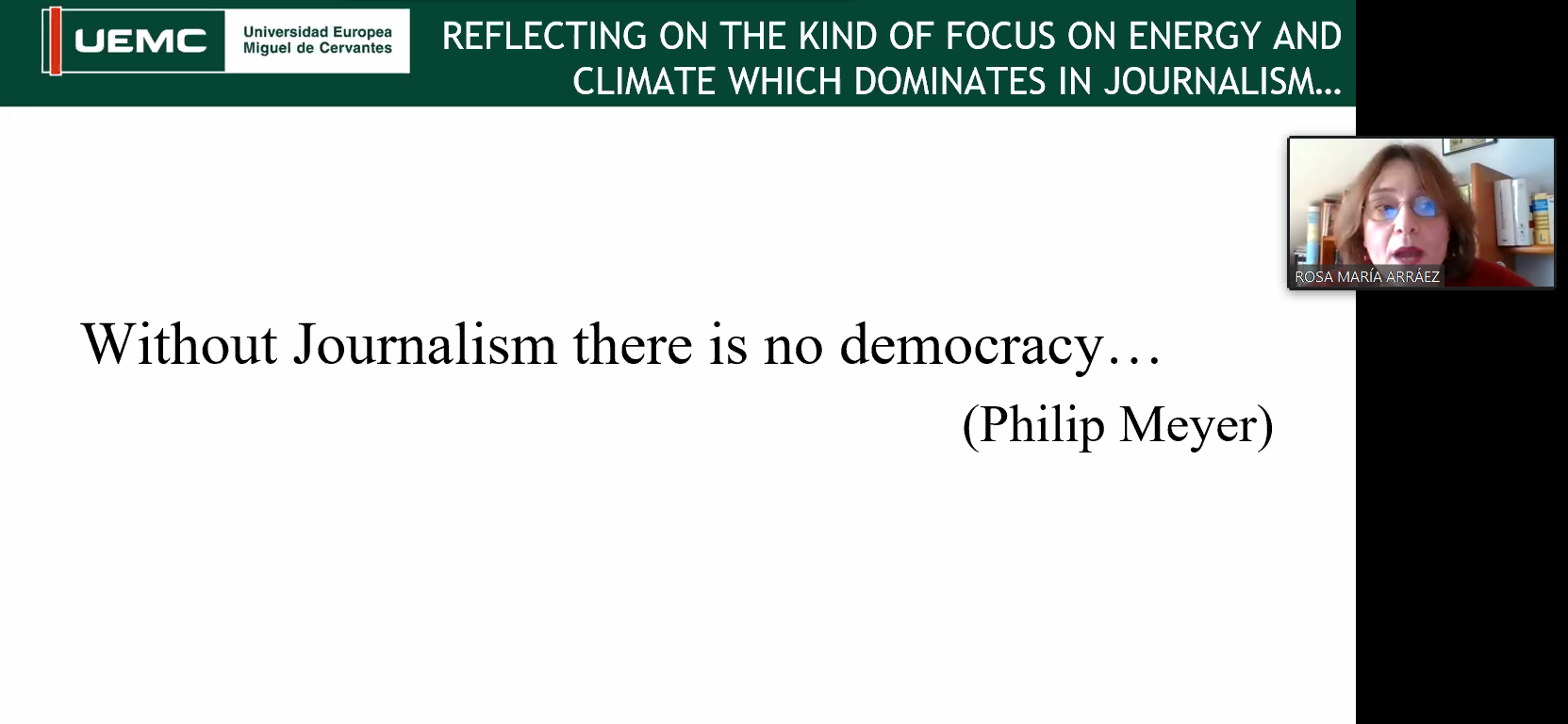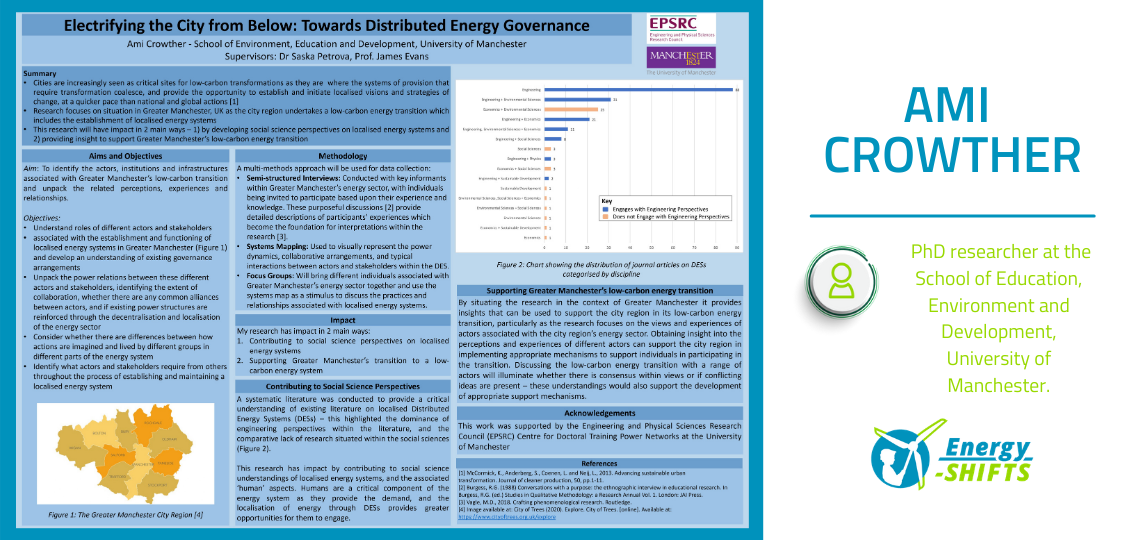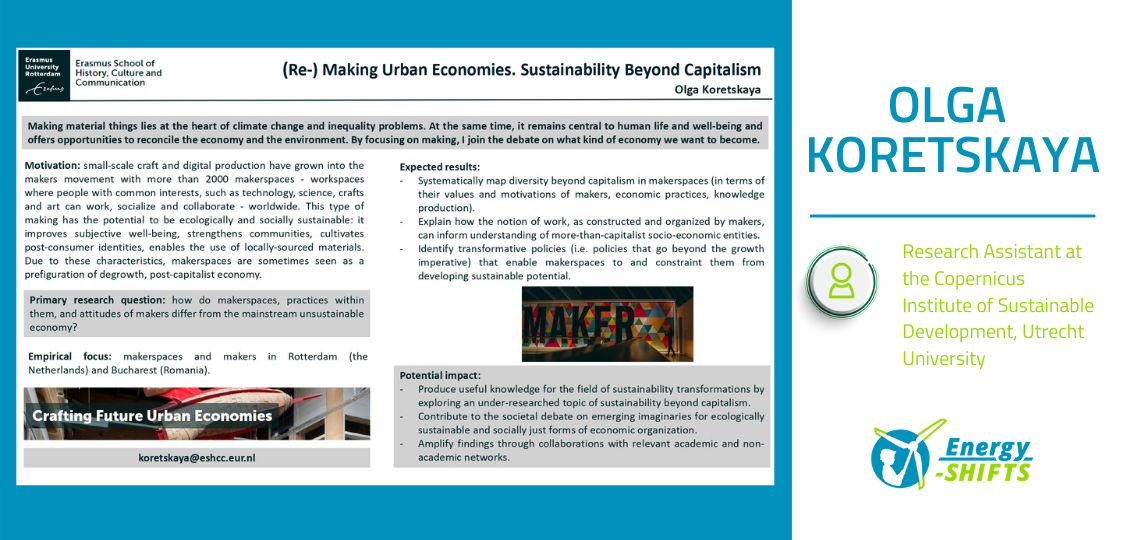In this blogpost, Emilia Smeds describes her experience working with the welcoming leads of WG4 Transport
It’s been a great experience working with the welcoming leads of WG4 Transport, Marianne, Timo and Ivana, as well as my knowledgeable fellow ESR Aline. As ENERGY-SHIFTS is a cross-European collaboration, our interaction has mainly been over Zoom – but I feel we have been able to get to know each other, establish a good atmosphere and synergy of thinking nonetheless.
Since my involvement with ENERGY-SHIFTS started, I have been impressed with the project’s innovative methodological approach, and feel that I have learned a lot about things big and small. I passionately agree with the starting point of the project: that European Research & Innovation policy could benefit from social science and humanities (SSH) perspectives. I believe one crucial role for SSH researchers should be to generate perspectives on the justice and fairness of current and future mobility systems, which society and decision-makers can draw on (Smeds et al. 2020).
Often innovation policy is focused on technologies and products, which are of course important to meeting the objectives of the European Green Deal. However, citizens’ perspectives and behaviour, as well as the importance of effective and democratic governance structures, are also central to achieving sustainability transitions. This is particularly relevant to mobility, where we already have access to sustainable technologies (e.g. cycling, ICT-enabled public transport systems), but bringing the public and politics together to enable actual implementation of these technologies is the primary challenge.
I think there needs to be a lot more research funding for projects that compare infrastructure governance approaches across European cities, which would allow more ‘political’ learning between cities, rather than the current focus of many city networks on ‘technical’ learning about solutions (Smeds 2019). For example, Budapest might be interested in learning from Bordeaux about the versement transport tax that allows local government to have the resources to test a range of mobility innovations, rather than about the energy efficiency specifications of the city’s tram system.
My PhD research compares the capacity of municipal government to work towards mobility transitions through ‘experimentation’ (i.e. piloting) in Bristol in the UK and New York City in the United States. I compare municipal capacity in this mid-sized city as a representative case of the limited capacity of UK cities within a fiscally and politically centralized state, with a much more powerful city administration that has greater autonomy within the context of US federalism. My findings reveal that although the cities share many challenges that means they can be compared, in NYC, city government has had greater capacity to test and upscale new mobility technologies and practices – offering policy implications for the UK regarding how local government capacities can be strengthened.
One of the activities I have assisted with as an Energy-SHIFTS ESR was the editing of proposed questions for future research on transport and mobility, submitted by WG members to the Horizon Scan exercise. It was interesting to see that politics and governance were prominent themes of interest to WG members. Other governance questions that interest me are how local experimentation with mobility policies and practices can be ‘scaled up’ to the national level (Smeds and Acuto 2018), potentially resulting in reform of country-wide regulations and standards (e.g. street design guidelines in the case of mobility, building codes in the case of energy efficiency). Transitions towards sustainable mobility might also require SSH researchers to reflect on the past to understand how the relationship between the car and European welfare states can be rethought at a more fundamental level. I have argued that this is because the construction of automobility – our current car-dominated societies – was an enormous political project undertaken by national governments and the European Union following WWII, in terms of infrastructure expenditure (e.g. the TEN-T highways network) and support for the automotive industry (car companies like Peugeot, Volvo, Skoda, Fiat) – and thus it might not be possible for cities and local innovative actors to disrupt this entirely on their own (Smeds 2020).
As an ESR I also assisted with the recruitment of WG members. I found it really inspiring to be exposed to the project’s focus on the geographical, disciplinary and gender diversity of WG members and thus the perspectives feeding into the Horizon Scan. In other words: questions are only as diverse as the people asking them – with greater diversity allowing us to understand transitions to sustainable mobility more holistically. I recommend checking out the cutting-edge journal article published by the ENERGY-SHIFTS team on inclusive engagement and gender diversity. I also had the opportunity to comment on the composition of WG members, and suggest researchers based in Central and Eastern Europe. As a researcher based in the UK, I know more than well that the research world can be very Anglo-centric. I believe that it’s very important to include perspectives rooted from non-Western European contexts, as transitions towards sustainable mobility in these countries have different starting points.
It’s been a fantastic opportunity to be part of such an open, non-hierarchical and methodologically innovative project. I look forward to seeing what the rest of 2020 brings for ENERGY-SHIFTS!
Smeds, E. and Acuto, M. (2018). Networking Cities after Paris: Weighing the Ambition of Urban Climate Change Experimentation. Global Policy, 9(4), pp.549–559.
Smeds, E. (2019). Unpacking the Politics of C40: ‘Critical Friendship’ for a Second Decade. Global Policy, 10(4), pp.720–722.
Smeds, E. (2020). The greener state: Public services for a carbon-neutral Europe. In A. Harrop, M. Murray, & J. Nogarede, (eds). Public Service Futures Welfare States in the Digital Age. Foundation for European Progressive Studies and the Fabian Society.
Smeds, E., Robin, E. and McArthur, J. (2020). Night-time mobilities and (in)justice in London: Constructing mobile subjects and the politics of difference in policy-making. Journal of Transport Geography, 82.








